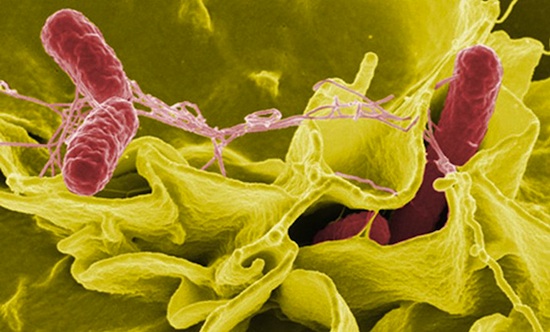Antibiotic Resistant Salmonella Epidemic Is Up To 45% Fatal, May Spread From Human To Human
Researchers following the spread of salmonella in Africa, which has reached epidemic levels, have found that the spread of the disease may be linked to the emergence of HIV on the continent, implying that the blood-borne disease may have followed in the wake of HIV, finding good hosts in people with compromised immune systems and becoming more prevalent as it did so. The same study has also identified some of the genes for antibiotic resistance that are partly to blame for the disease’s increased virulence and mortality in Africa.
Invasive non-typhoidal salmonella (iNTS) is, in a great many ways, just like any other salmonella that you or I could pick up by, say, not washing our hands thoroughly after handling raw meat. The recent report shows evidence that this strain is more finely tuned to infect humans, and may have undergone a co-evolution of sorts with HIV. That evolution, which would have taken place just in the last few decades — a brief time, evolutionarily speaking– seems to allow iNTS to spread more easily in human populations. It also makes the bacteria more devastating to immune systems compromised by not only HIV, but in many cases malaria and malnutrition as well.
Genome sequencing shows that iNTS may be responsible for many more cases of salmonella poisoning in Africa than once thought, meaning this young and virulent strain could be starting to get a bigger foothold on the continent. “Its genetic makeup is evolving into a more typhoid like bacteria, able to efficiently spread around the human body,” says Chinyere Okoro, an author on the study.
The news may be even worse than that, though. The disease, which has acquired genes for resistance to many common antibiotics during its recent evolutionary climb, is tough and expensive to treat, but that’s still not the cherry on top the this bad news sundae. Early indications are that this strain of salmonella could also be transmissible from person to person. That, combined with its virulence and resistance to common drugs, could mean that, like its colleague HIV, it may not be destined to stay confined to Africa.
(via Science Daily)
- Your pitiful pepperoni antibiotics are useless here
- Maybe sugar can save us all?
- At least there are some bacteria that aren’t invincible yet
Have a tip we should know? tips@themarysue.com
